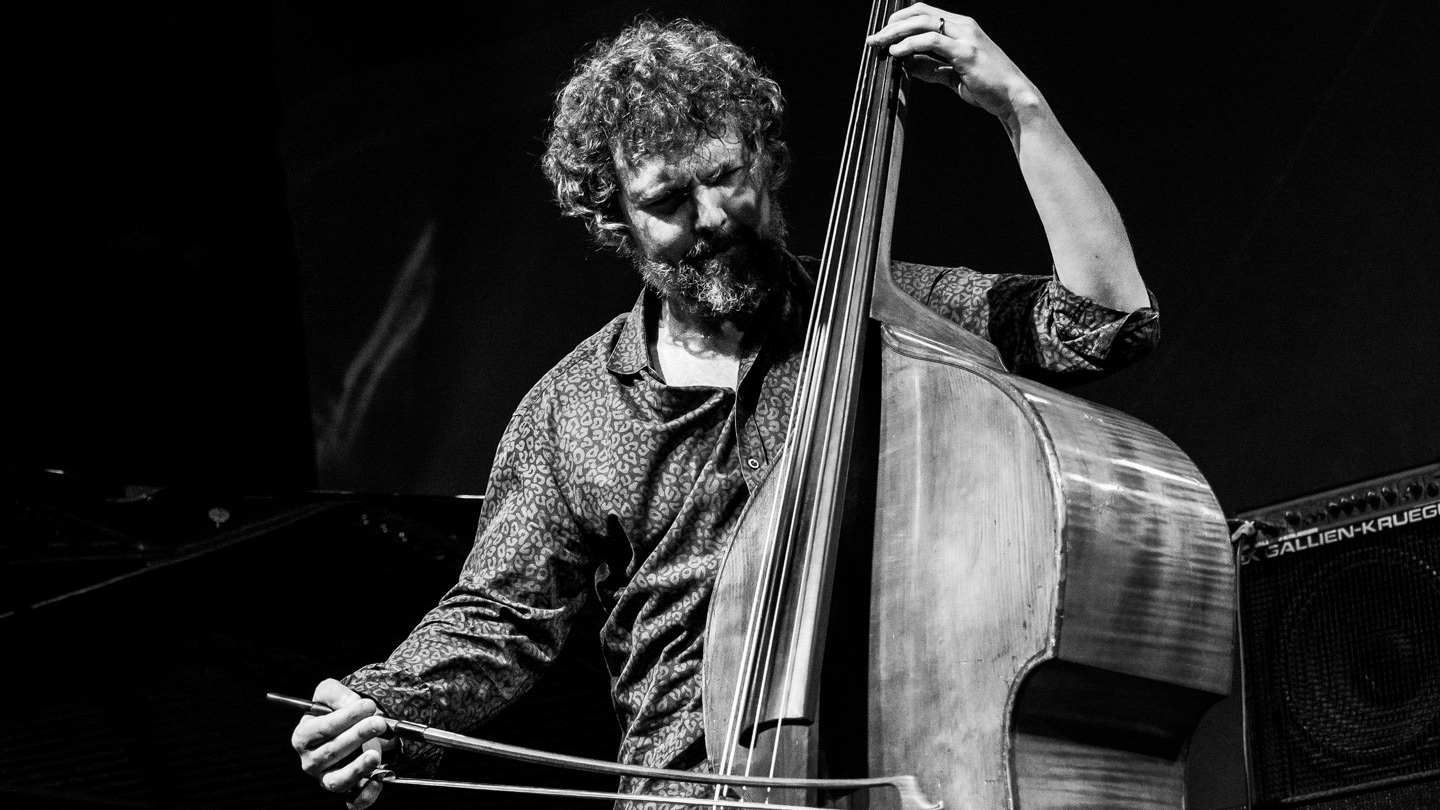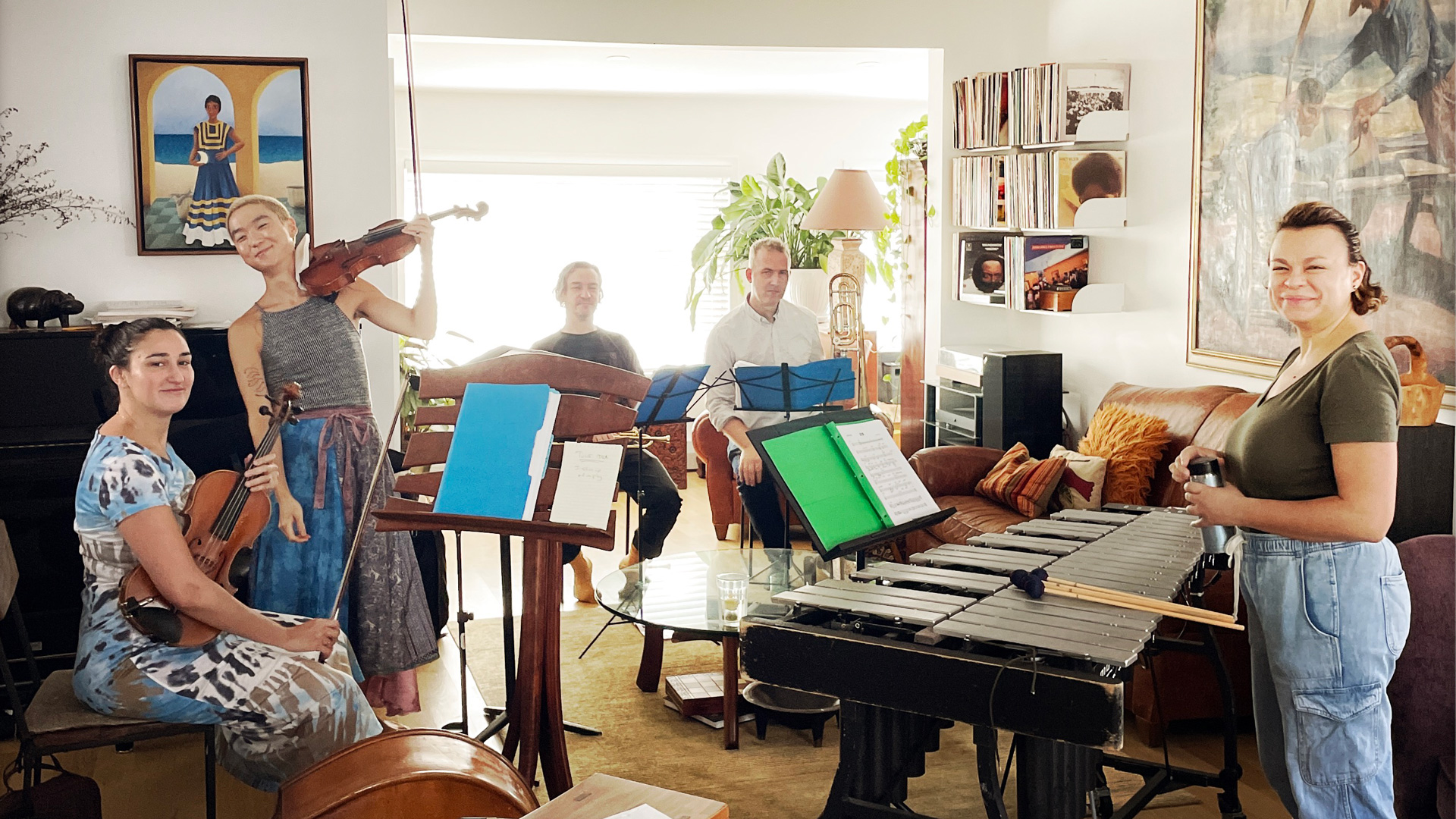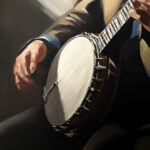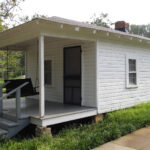
Water Always Wins
A jazz player who grew up roaming the banks of the Mississippi produces a musical meditation on life’s most essential element.
Our formative years have an outsized influence on how we experience the world as adults. That’s one reason people from the South maintain a distinctive aura of Southern-ness no matter how far they wander from their home turf. Or waters.
Which brings us to Slow Water by jazz bassist/composer Stephan Crump, a Memphis native who has been a steady hand in the New York jazz scene for close to thirty years. Crump has assembled an A-list chamber sextet of Patricia Brennan (vibraphone), Joanna Mattrey (viola), yuniya edi kwon (violin), Jacob Garchik (trombone), Kenny Warren (trumpet), to play his sixteen-movement composition inspired by award-winning environmental journalist Erica Gies’s 2021 book, Water Always Wins: Thriving in an Age of Drought and Deluge. The production is exquisite and the musicians brim with a presence that does justice to Crump’s considerable compositional ambitions.
Growing up, Crump spent hours roaming the banks of the Mississippi. Through his travels, he hung around Washington’s Puget Sound; the wild Missinaibi River in northern Ontario; the Onyar in Spain; and the Gowanus Canal near his current home in Brooklyn. With Slow Water, he seeks to honor his relationships with water with an eye to highlighting the personal and social connections that permeate life’s foundational element.
In Water Always Wins, Crump found a hopeful perspective to balance against his despair over an alarmingly degraded ecosystem. In her book, Gies suggests water creates its own conditions for revitalization and course correction. Our efforts to harness water, she argues, are often fool’s errands that create more intense versions of the very problems they purport to solve (e.g., Louisiana’s Great Flood of 1927). She insists that water’s natural tendencies are both wise and inevitable, and that water—left to its own devices—will create healthier conditions than humans could by trying to manage the ecosphere. Betting against water, Gies reckons, is like betting against the house in Vegas: water always wins.
Stephan Crump’s Slow Water is a continuous suite of music that is by turns ambient meditation, chamber swing, modernist spikiness, and harmonic surprise.
Crump’s Slow Water notches its own victory. His compositions leave ample space for the sextet to interpret themes and create personal statements inspired by evocative movement titles like “Sediment and Flow,” “Pooling,” and “Mire.”

I especially love how “Pneumataphore” (the water equivalent of root structures) captures the ominous float and waft of jellyfish tendrils. Crump’s deep bass drone floats atop breath-through-brass whispers and the harmonic whine of strings and vibes before it flows into the rocking groove and angular melody of “Euphotic.”
The “euphotic” layers of a body of water are near the surface, where sufficient light can penetrate to permit the growth of green plants. Crump’s musical picture of them gradually quietens to an almost elegiac evocation of still water.
The album closes with “Meiofauna” (animals so small they can live between the grains of sand and mud on the seafloor), a fifty-second scramble of vibraphone and plucked and scraped strings that perfectly captures those skittering little beasties, followed by the fully orchestrated final movement, “Bend.”
It’s a gorgeously hopeful statement with the occasional punctuation of disturbing string arpeggios that ripple like gusts on water. In the end, though, the harmony settles into an out-statement that is smooth as a lake on a still day.
But these are just my reactions to a continuous suite of music that is by turns ambient meditation, chamber swing, modernist spikiness, and harmonic surprise. Go get your own.
Even as Slow Water rewards concentrated engagement, it also qualifies as pure shimmer, something akin to floating down a lazy river in an inner tube. I can’t wait to drift with this one on a humid summer night, with a choir of cicadas jamming along. Slow Water, an album whose roots are in the mighty Mississippi, stills us long enough to ponder what it means to be here, even if that’s not the somewhere we came from.
Go. Listen.
About the author
Chattanooga-based writer/musician Rob Rushin-Knopf, Salvation South’s longtime culture warrior, blogs about culture at Immune to Boredom and appears regularly as one-half of the near-jazz duo RoboCromp.





